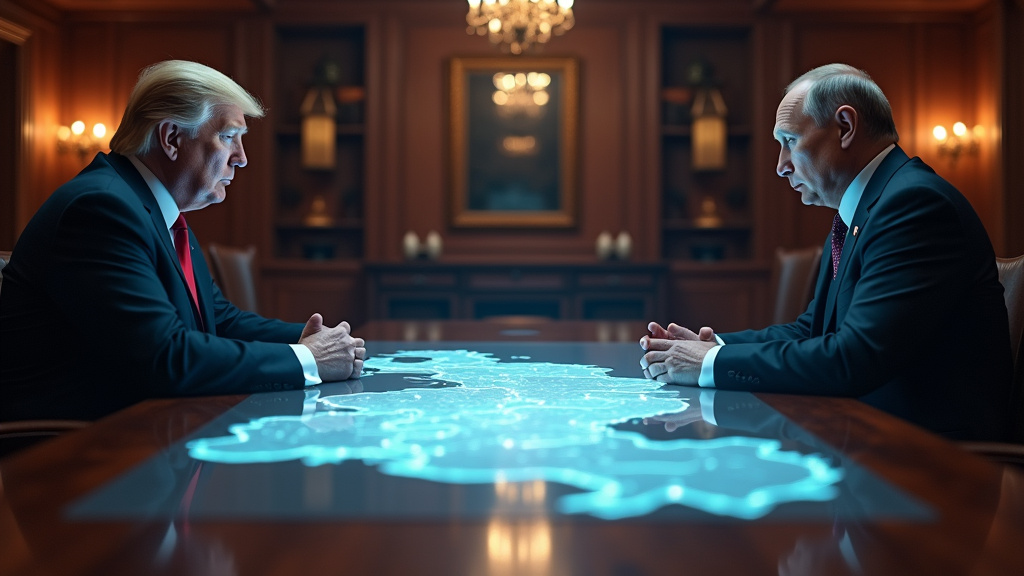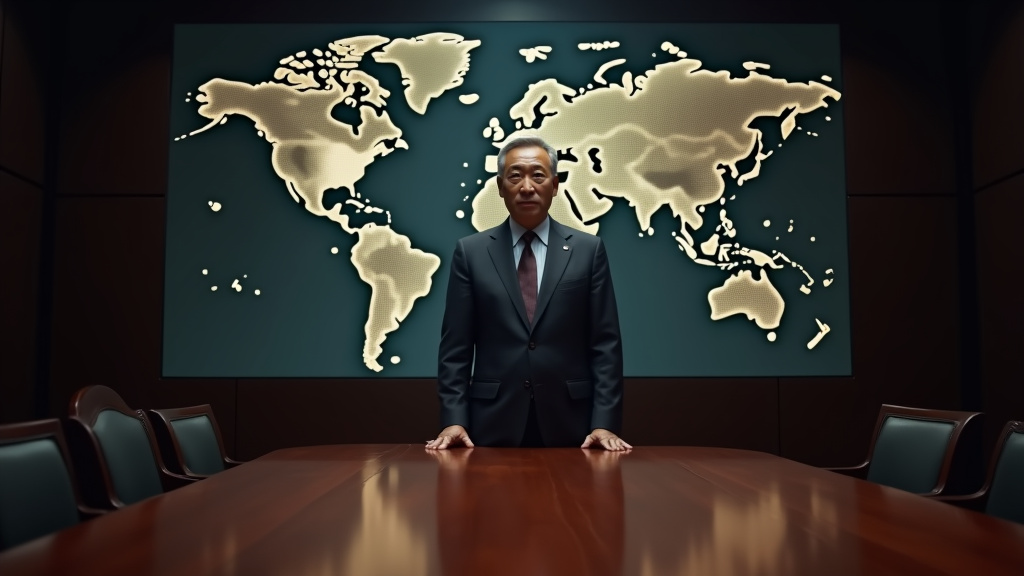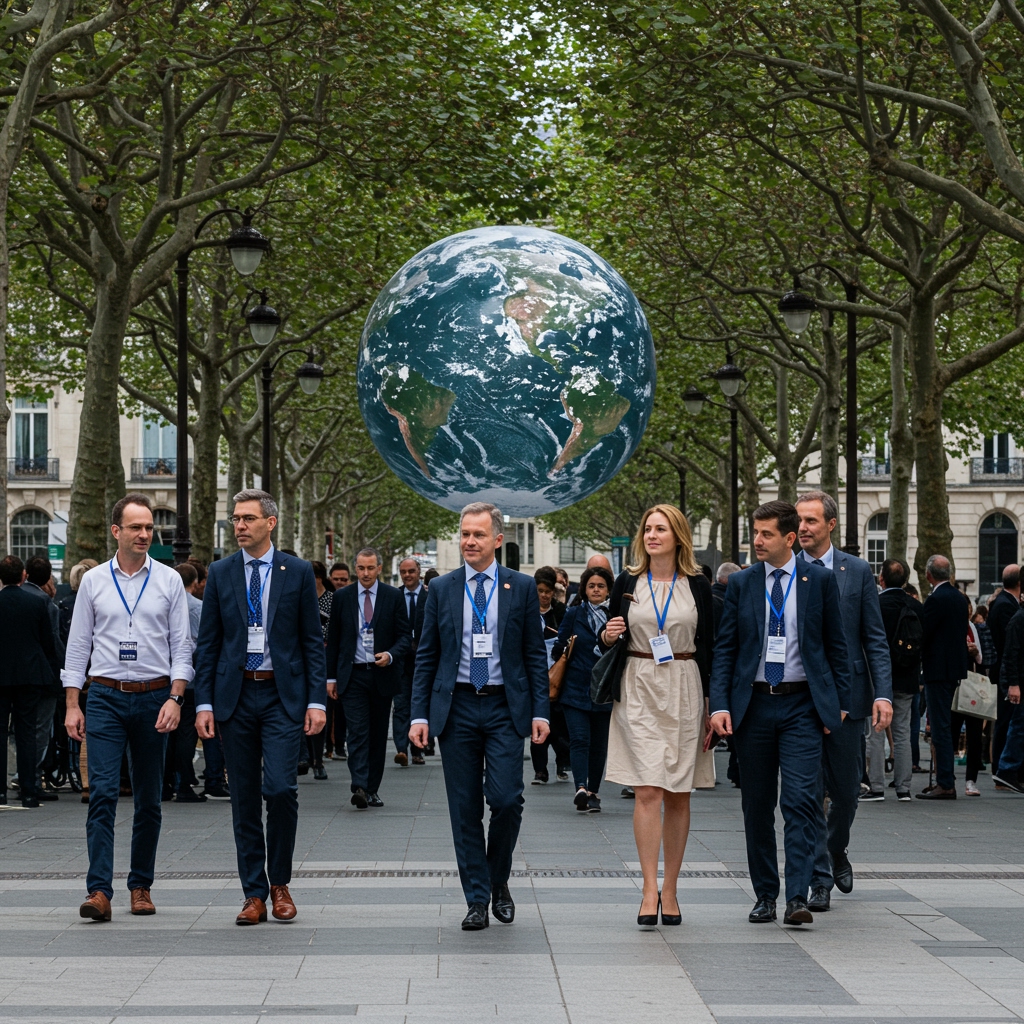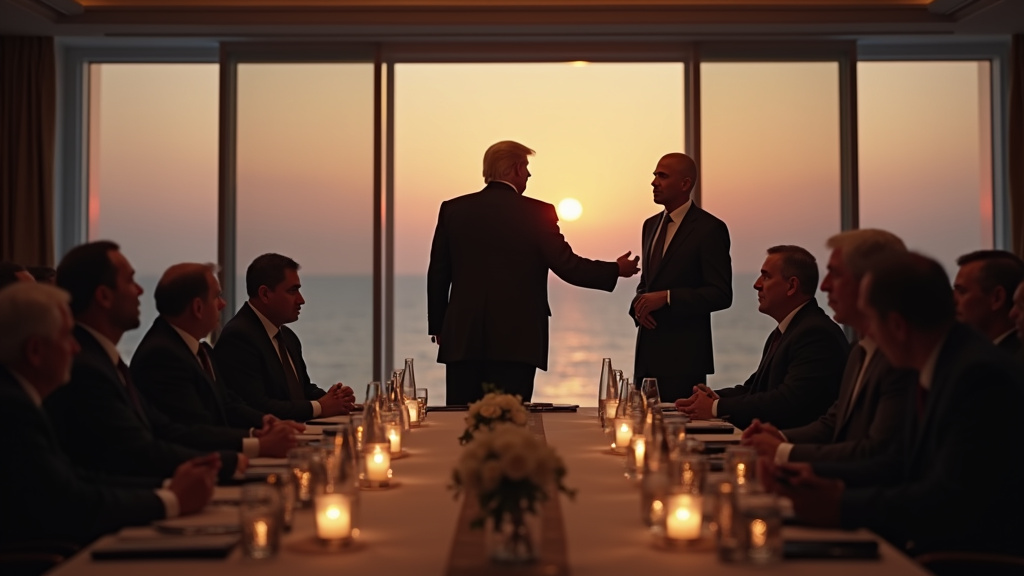Global diplomatic efforts reached a critical juncture on Monday, August 11, 2025, as U.S. President Donald Trump announced a significant shift in his approach to the ongoing conflict in Ukraine. In a statement that immediately garnered worldwide attention and debate, President Trump asserted that for the protracted conflict to conclude, both Kyiv and Moscow would inevitably need to cede land. This declaration sets the stage for a highly anticipated meeting with Russian President Vladimir Putin later that week in Alaska, a summit from which diplomatic observers and global leaders alike expect to glean the Kremlin leader’s willingness to engage in a substantive and lasting peace deal. These top international developments unfold amidst a flurry of other significant national events, including crucial electoral reforms and landmark judicial directives in India, all contributing to a dynamic landscape of major political event news.
Diplomatic Offensive: Trump’s Ukraine Gambit and Global Engagement
President Trump’s proposal marks a direct and, for some, controversial challenge to the current stalemate, suggesting a pragmatic, albeit difficult, path toward de-escalation. The assertion that both sides must make tangible territorial concessions underscores a belief that a lasting peace cannot be achieved without mutual compromise—a concept likely to be met with varied reactions from the warring parties and their international allies. This pre-summit declaration highlights the immense weight placed on the upcoming talks in Alaska, where the U.S. aims to explore the potential for a breakthrough. Ahead of this high-stakes meeting with President Putin, designed to test the waters for a comprehensive agreement, President Trump is scheduled to engage in vital pre-summit discussions with key European leaders and Ukrainian President Volodymyr Zelenskyy. These preparatory talks are crucial for aligning international strategies, managing expectations, and ensuring a unified, albeit flexible, front, even as the U.S. outlines its vision for a resolution that requires difficult choices and sacrifices from all parties involved. The successful navigation of these diplomatic events is seen as paramount for regional stability.
Adding another crucial layer to the complex geopolitical landscape, India’s Prime Minister Narendra Modi has also been actively engaged in a broader diplomatic push to promote a peaceful resolution to the conflict. Just two days after a significant telephonic conversation with Russian President Vladimir Putin, Prime Minister Modi held a detailed discussion with Ukrainian President Volodymyr Zelenskyy. During their call, Prime Minister Modi reiterated India’s consistent and unwavering stance on the urgent need for a peaceful resolution to the conflict, emphasizing dialogue and diplomacy as the only viable path forward. This underscores India’s commitment to global peacemaking efforts and its role as a key player in encouraging de-escalation. This series of high-level engagements by both the U.S. and India highlights the intense global focus on ending the protracted conflict, underscoring the interconnectedness and urgency of these major global events.
Electoral Reforms and Public Safety Directives in India
While international diplomacy commanded significant attention, significant domestic developments unfolded within India, pointing to ongoing, robust efforts to bolster electoral integrity and address critical public safety concerns. The Election Commission of India, in its continued and resolute drive to clean up the electoral system, identified an additional 476 Registered Unrecognised Political Parties (RUPPs) for potential de-listing from its official records. This comprehensive move is part of a broader, sustained initiative aimed at enhancing transparency, promoting accountability, and curbing financial irregularities within the nation’s political landscape. The de-listing process is critical for ensuring that only genuine and active political entities operate within the electoral framework, thereby strengthening the democratic process by eliminating defunct or shell organizations.
Concurrently, the Election Commission also took a firm and public stance against recent allegations that threatened to undermine public faith in the electoral process. The commission directly refuted the Congress party’s highly publicized ‘vote theft’ claims, categorically stating them as factually incorrect. This robust rebuttal from the independent electoral body reaffirms its unwavering commitment to upholding the integrity and impartiality of the electoral process and is vital in dispelling misinformation that could erode public trust in democratic institutions. These measures collectively underscore the Election Commission’s proactive and vigilant role in maintaining a fair, robust, and credible democratic system, addressing various aspects of what could be considered major political event news domestically and setting precedents for future electoral conduct.
In a separate but equally impactful development concerning public welfare and urban management, the Supreme Court of India issued stern and immediate directives to authorities in Delhi and the National Capital Region (NCR) regarding public safety. The apex court mandated the immediate capture and detention of stray dogs, unequivocally prohibiting their return to public spaces once apprehended. This definitive ruling, aimed squarely at mitigating pressing public health and safety risks associated with unchecked stray animal populations, represents a decisive legal intervention to protect citizens from animal attacks and maintain urban order and hygiene. The directive is expected to prompt swift and decisive action from municipal bodies and civic authorities across Delhi and NCR, marking a significant and much-needed step in addressing a persistent and often challenging urban issue that impacts daily life for millions.
As the week progresses, the world will closely watch the anticipated Trump-Putin summit in Alaska, with hopes for a tangible breakthrough in the Ukraine conflict dominating global discourse. Simultaneously, India’s internal reforms, from rigorous electoral oversight to crucial public safety mandates, continue to shape its national narrative and civic landscape. These diverse, trending events underscore a period of intense activity and significant developments across both international and domestic fronts, promising further impactful news and policy implications in the coming days.





